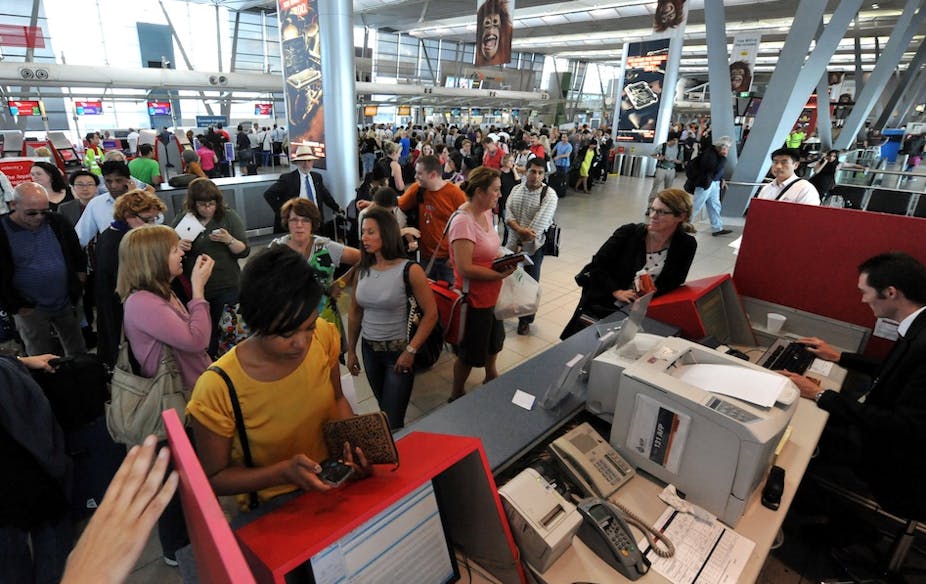Is it the comfort of the seats, the high standard of the food or the friendliness of the cabin crew that has us using the same airline time after time?
According to recent research we conducted at the University of Wollongong, factors such as these have very little to do with why we stay loyal to an airline. We found that satisfaction with an airline’s performance is heavily overrated as the reason we stay dedicated to a particular airline.
In the past ten years, airlines have faced high oil prices, the emergence of low-cost airlines, natural disasters, and industrial action – including the ongoing workplace dispute at Qantas.
These factors have made it a difficult beginning to the 21st century for the industry. Retaining passengers as loyal customers is one way to strengthen an airline’s competitiveness. This type of customer is generally less sensitive to price changes and requires less effort to communicate with.
Most previous research on this topic focuses on airline choice, so and very little is known about what makes an airline passenger loyal to an airline. Until now it has been assumed that satisfaction leads to customer retention, but our recent research shows that this is not the case.
So what is it that makes an airline customer loyal to an airline?
Based on our findings, there are several factors that play a role in airline loyalty, but satisfaction is not one of them. This is a surprising result, as it has long been believed that this is a key driver for using an airline. In fact, many airlines put a significant amount of time and effort into increasing their customer satisfaction.
We found that there are other reasons people stay loyal to an airline, depending on what kind of traveller we are. In the case of business travellers, it was found that the single most important factor for traveller loyalty is membership in a frequent flyer program. Being a member of a loyalty program has this group returning to the same airline time after time.
In one way, I do not find this to be a surprising result, especially for Australian travellers. To travel anywhere from Australia is bound to be a long flight, and any preferential treatment, such as a quick check-in, or a comfortable lounge to wait in, can make a huge difference to the overall experience.
If you frequently travel, you want to get some kind of benefit out of all those hours spent in airports and on airplanes, by getting frequent flyer points you can use on far more pleasant things, such as holidays.
When it comes to leisure travellers, it is more difficult to trace loyalty back to single factors. However, price emerges as one of the most important reasons why this group uses a certain airline.
There are also several other variables that are significant, such as an airline having the status of being a national carrier and the reputation by the airline as perceived by friends.
Based on these findings, it would make sense for airlines to invest in developing and improving loyalty programs to increase their base of loyal customers, instead of putting all their efforts into increasing customer satisfaction, which is typically extremely hard to measure in a valid way anyway.
This also applies to leisure travellers, as it could pay off to find new ways of making loyalty programs more attractive to this group to reduce their heavy dependency on price.

